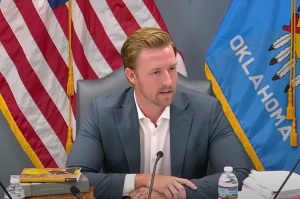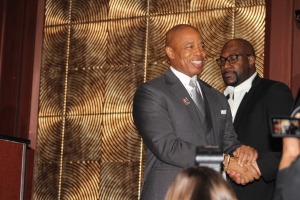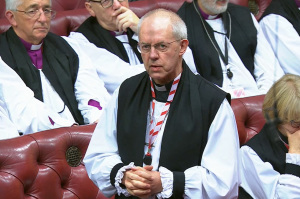Supreme Court Dismisses Arizona, Nevada Same-Sex Marriage Cases
After announcing its decision in two landmark same-sex marriage cases on Wednesday, the Supreme Court declined to take up two more cases relating to same-sex marriage, one involving the state of Arizona and the other involving Nevada.
Arizona's case, Brewer v. Diaz, involved state Gov. Jan Brewer asking the justices to reconsider an appeals ruling which struck down a state law denying health benefits to domestic partners of state employees; the justices' decision to decline hearing the case means the appeals ruling will stand.
Gov. Brewer sought a Supreme Court ruling for the appeals decision because she argued that the 2009 law was not intended to discriminate against same-sex couples but rather was implemented as a money-saving strategy for the state.
The Nevada case, Sevcik v. Sandoval, sought to have the justices recognize definitively that individual states have the right to legally limit marriage to heterosexual couples; this case will now be considered in a federal appeals court in San Francisco.
Nevada's local Coalition for the Protection of Marriage group, which sponsored the case as it was presented to the Supreme Court, argued that they represented "average Nevadans [who] believe in the preservation of traditional marriage."
On Wednesday, the Supreme Court ruled on two landmark same-sex marriage cases, one regarding the federal Defense of Marriage Act and the other regarding California's Proposition 8 – an amendment banning same-sex marriage.
The justices ruled in the DOMA case, United States v. Windsor, that a key provision of the act was unconstitutional, thus awarding same-sex couples the same federal health, tax, and retirement benefits available to heterosexual couples.
The Supreme Court also ruled to dismiss an appeal in Hollingsworth v. Perry, saying that proponents of Proposition 8, a 2010 voter-approved ban on same-sex marriage in California, did not have the legal standing to appeal a lower court's ruling which struck it down.
The president of the Human Rights Campaign, a proponent for the legalization of same-sex marriage in Arizona, said in a statement following the Supreme Court's Wednesday rulings that although the LGBT community was pleased with the justices' decisions, it still sees an uphill battle on a state level.
"Yesterday's victories at the Supreme Court thrilled LGBT people across the country, but it also reminded those living in many states of the inequality they and their families continue to face," Human Rights Campaign President Chad Griffin said in a statement.
Arizona Rep. Trent Franks, a Republican, meanwhile, agreed with the dissenting opinions in the DOMA ruling, arguing that the justices invoked an overreach of power.
"Rather than confining themselves to their Constitutional duty of deciding cases, the Supreme Court has more and more become the default arbiter of all major issues in America. If the American people allow this trend to continue, we can board up the Capitol and White House and send the people and their elected representatives home to henceforth live and breathe at the pleasure of a tyrannical judicial oligarchy," Franks said in a statement following the DOMA ruling.
Both proponents and opponents of same-sex marriage note that the Supreme Court's rulings offer neither sides of the issue a sweeping resolution because the battle regarding same-sex marriage remains in individual states.





























